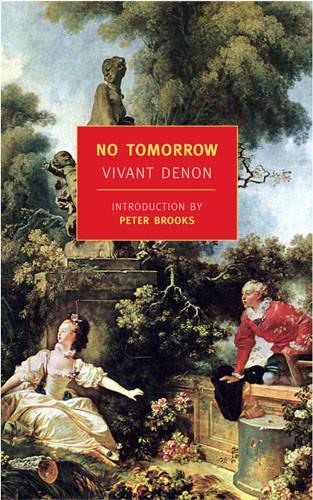
No Tomorrow
(Paperback, Main)
Publishing Details
No Tomorrow
By (Author) Vivant Denon
New York Review Books
NYRB Classics
15th November 2009
Main
United States
Classifications
Physical Properties
Paperback
112
Width 128mm, Height 202mm, Spine 7mm
120g
Description
Vivant Denon's No Tomorrow is one of the masterpieces of 18th-century French libertine literature, a book to set beside Laclos's Liaisons dangereuse, except that where Laclos's icy novel is one of hellish depravity Denon's ravishing novella is a paradisal diversion. This tale of seduction that is itself a seduction, with a plot that could be said to slowly unveil itself before arriving at last at an unexpected consummation. Summoned by Madame de T___ to her country house, the young hero of the novella is taken on a tour of the grounds, only the beginning of night that will not only be full of unanticipated delights but will give rise to unexpected, perhaps unanswerable, questions. Lydia Davis's definitive translation of Denon's slim masterpiece is accompanied by the French text. Peter Brooks, professor of comparative literature at Yale University, provides an introduction that explores the mysteries of No Tomorrow's original publication and the subtleties of Denon's ethics of love.
Reviews
Lydia Davis's translation is equal to the challenges of Denon's formal, elaborate prose, and there is little to choose between her version and the excellent one produced by David Coward in 1995... This elegant edition reproduces Denon's original text, which remains, by common consent, a masterpiece. Times Literary Supplement A trip to pre-Revolutionary France, where one is comforted to encounter once more its aristocracy's relaxed attitude to matters such as marital fidelity. Scottish Sunday Herald You can read No Tomorrow in just an hour. Its chiaroscuro effects of candlelight and shadow, its teasing tone, its picture of gradual unveiling and dishabille will keep you both charmed and on edge. Embrace the gradualness, the anticipation. There's no need to rush. Guardian Weekly
Author Bio
Vivant Denon (1747-1825) was a French artist, writer, diplomat, author, and archaeologist. He was appointed first director of the Louvre Museum by Napoleon after the Egyptian campaign of 1798-1801. Peter Brooks is the author of several books, including Henry James Goes to Paris, Realist Vision, and The Novel of Worldliness. He is also the author of one novel, World Elsewhere. Brooks recently joined the Princeton faculty as Mellon Visiting Professor. Lydia Davis is the author of several works of fiction, including Break It Down, The End of the Story, and, most recently, Samuel Johnson is Indignant: Stories.
